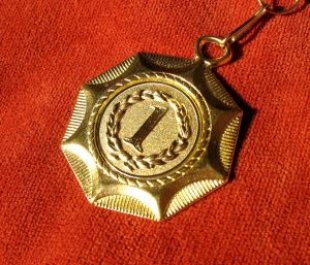By: Alexa DuMity
Over 1,000 student-athletes competed at the Rio Olympics in 2016.[1] This included current and incoming student-athletes.[2] Many of these athletes were successful and brought home medals for Team USA. Katie Ledecky was one of the brightest stars who shined at Rio, she took home four gold medals and one silver medal from the Rio games. The United States Olympic Committee awards funds for medaling at the Olympics: $25,00 for gold, $15,000 for silver, and $10,000 for bronze.[3] That means Ledecky ended up taking home $110,000 in total from her superb performance at the Rio Olympics.
Ledecky has committed to swim for Stanford University. The NCAA strictly adheres to its guidelines for making sure its incoming and current student-athletes retain their amateur status. In general, the amateurism requirements do not allow for prize money above actual and necessary expenses, among other rules.[4] However, lucky for Ledecky and other Olympic student-athletes, the NCAA has an exemption for the Olympics.
12.1.2.1.4.1.2 Operation Gold Grant. An individual (prospective student-athlete or student-athlete) may accept funds that are administered by the U.S. Olympic Committee pursuant to its Operation Gold program. (Adopted: 4/26/01 effective 8/1/01)[5]
So Ledecky, and other medal-winning student-athletes get to keep their prize money and their amateur status. Ledecky’s $110,000 pales in comparison to Joseph Schooling’s award of over $700,000.[6] Schooling was the first person from Singapore to bring home an Olympic gold, and he was generously rewarded for his efforts. The swimmer will get to keep the full amount for his Olympic Gold and head back to the University of Texas with his amateur status intact. [7]
A 2015 rule-change allows international athletes to receive Olympic medal prize money from their national Olympic committee while retaining their amateur status for NCAA schools. Is this fair to other student–athletes? That’s up to the NCAA to decide. The Operation Gold exemption currently has no limit on the amount of award money an athlete can receive from medaling at the Olympics. After Schoolings big payday and a number of lawsuits involving the NCAA and the payment of athletes, it’s likely the NCAA will look into possibly modifying this rule before the next Olympic games.
[1] Courtney Martinez, 2016 Rio Olympics: Current NCAA Student-Athletes Competing by School, NCAA (Aug. 25, 2016, 13:40 EDT), http://www.ncaa.com/news/ncaa/article/2016-07-28/2016-rio-olympics-ncaa-olympic-student-athletes-school.
[2] Id.
[3] August 8, 2016- Operation Gold and Other International Incentives Programs, Pac-12 Compliance (August 8, 2016), http://compliance.pac-12.org/rules-revelations/august-8-2016-operation-gold-and-other-international-incentive-programs/.
[4] 2015-2016 NCAA Division I Manual 62 (The National Collegiate Athletics Association, 2015).
[5] Id.
[6] Tales Azzoni, Gold Medal Not the Only Prize for most Olympic Champions, CBC Olympics (Aug. 20, 2016 1:53 PM), http://olympics.cbc.ca/news/article/gold-medal-not-the-only-prize-for-most-olympic-champions.html.
[7] Marcus DiNitto, NCAA Will Let Joseph Schooling Keep His Huge Check for Olympic Gold Medal, Sporting News (Aug. 13, 2016), http://www.sportingnews.com/athletics/news/rio-olympics-2016-joseph-schooling-gold-medal-bonus-singapore/1osohy47yl6gu1nyhvs6a2l1g6.





